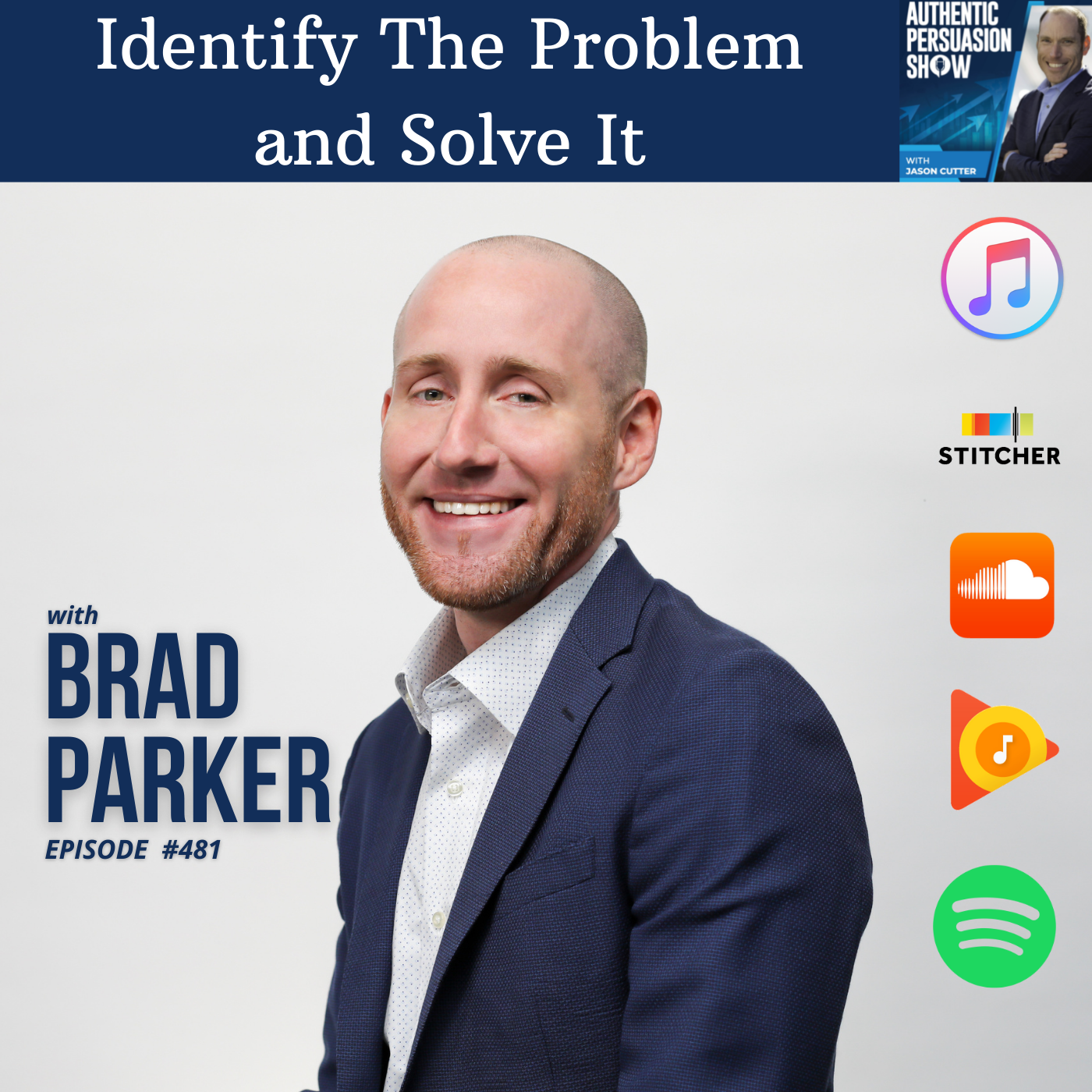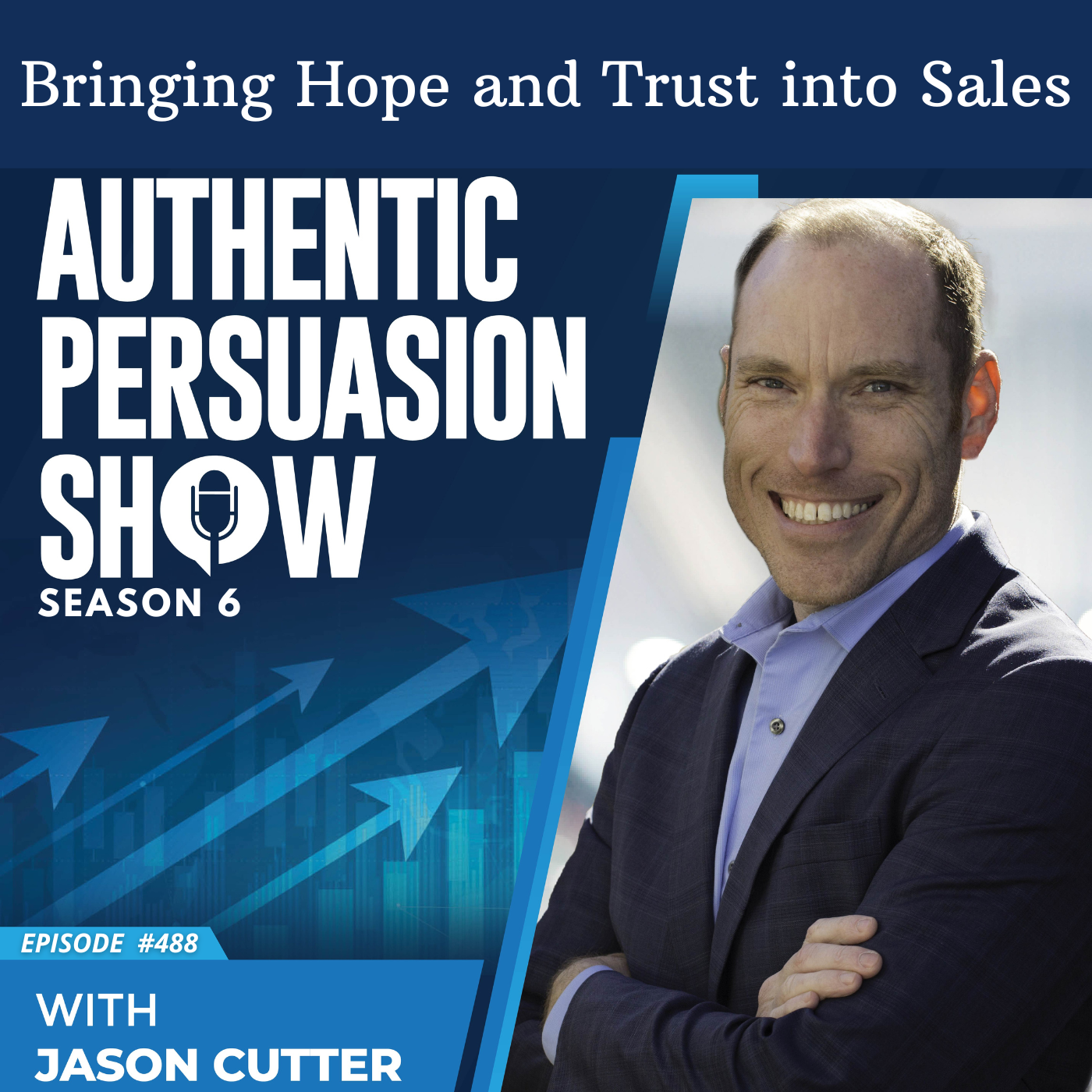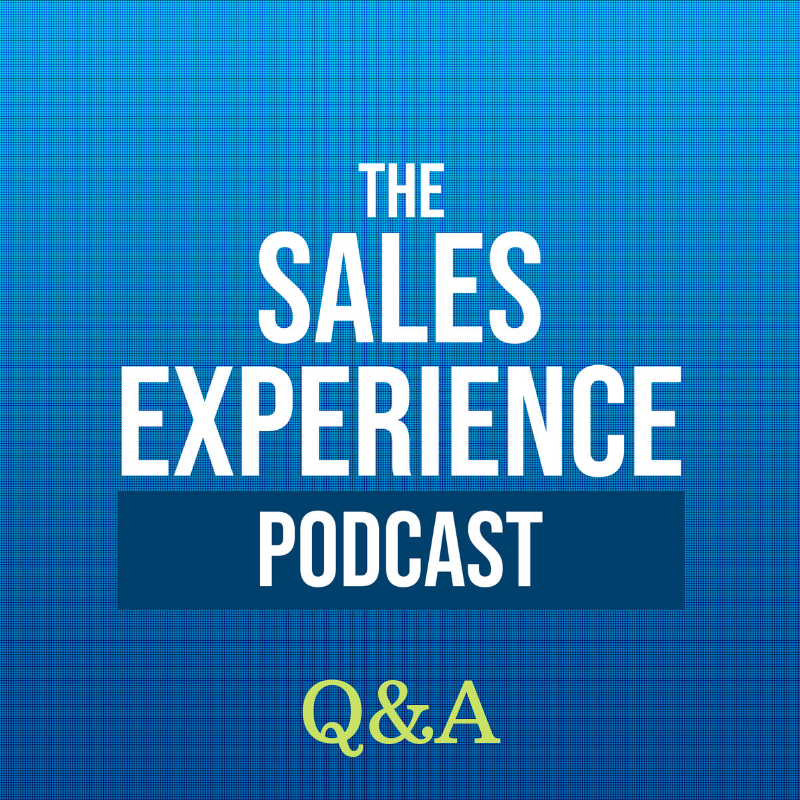Episode Transcript
[00:00:00] Speaker A: Welcome to the authentic Persuasion show. On this episode I want to replay part of a previous show. Maybe you heard the original full length episode and this could be a great refresher and reminder. Or maybe this is your first time hearing this content and the timing could be just right to help you leverage authentic persuasion today in your role, no matter what. Here's to your success.
This is the authentic persuasion show.
[00:00:26] Speaker B: Trust needs to be delayed. When you do the rapport step and the empathy step, trust is actually built like that formula will get you there. Then you can talk about yourself and your company, but not as a like here's how amazing we are and here's why you should buy from us. But here's how amazing we are, and here's why we think we're going to be your guide. Here's why we think we can help you. And I'm going with this where we're going to get to this fifth step today. We're going to talk about urgency. You saw that on the screen before it started. You see it in the title. We're talking about urgency, but this is so important because it builds up to this foundation. So we've got the trust step, which sometimes it's long, sometimes it's short. This is where you can talk about yourself, but again, in the framework of the fact that you are their guide. So here's how you can trust me as your guide, not trust me as a hero. Big difference. I did an episode on that, a session on that. Make sure to check that out. Then next step is hope. Hope is super important. That's step number four. So we have rapport and empathy, trust, and now we have hope and hope, which I did in a session a few weeks ago. Hope is all about letting them see the future that they could have as a result of buying from you and how your solution, product or service specifically helps them. If you sell something that it's the same for everybody, right? Like you sell some kind of service that's literally the same for everybody. The key is to remember, again, they think they're the hero of their own story. If you sell it to them in a way that makes them feel like they're one of many and they're just general, then hopefully they'll buy. But sometimes they won't because they think it's just general and it's not about them. You really need to make it about them. And the hope step is where you do that. So you take what you learned in the empathy step, the information you found out about why they want or need what it is that you have to offer and then how you can solve that. You go through the trust step at hope. You say, okay, based on what you told me, here's what we do, here's what I have to offer, and here's how I think it will help you with x, y, and z, whatever that is. Whatever their situation was, whatever their goal is, they want to get out of debt. They not just get out of debt, right? They want to get out of debt so that they can buy a house next year for their family because they're currently renting. Maybe they have a baby on the way and so on. Now, when you're talking about your solution, whatever that is, now it's about them. Like, here's how this program is going to help you get out of debt so that you can buy a house next year because you need more space, right? All about them. And again, you're programmed to help people get out of debt, fix their credit, change insurance, buy a car, buy a couch. Like, it doesn't matter. Even if you sell the same thing to everybody. And it's one package. Like, at the end of the day, there's one skew. There's one item on the invoice or one thing that everyone gets charged for. It's about how it helps them and how it will get them to a better place, help them achieve their goals, help them achieve what they want. And that is so important. Hope step. Now, we've done all that.
Fifth step. This is the make it or break it step. This is where two things happen. One is, this is where most order takers lose it, right? This is where most people who are, are in sales and they're acting more like order takers. Their results are more like order takers. And again, I say this all the time because I don't want people to get triggered and offended that I am being derogatory about them. But when I use the term order taker, it's really a state of condition. It's a state of your selling effectiveness if you are relying on trust and hope and. And, um, rapport and hoping that they like you and, you know, Bob Burke's quote of people will buy from people they know, like and trust, if that's where you stop the process, right? Like, there's so much more that even Bob talks about. But if you stop the process there and then you hope that they're going to buy from you because they like you enough and they trust you enough, and you did a good job and you did a good demo or you did a good explanation, then you're an order taker, right. And your results will show. Results will show that you're, you're probably closing at a rate that is not enough. Generally, depending on what the sales process is, I would say somewhere around 10%, because 10% of the people will buy no matter what, especially if you're just nice to them and they trust you and like you. And so if you're relying on that, you'll close a marginal amount of deals, and you'll always be struggling, and you'll probably always be worried about getting fired, worrying about getting called into meetings, uh, leaving the end of the week and going home and feeling like you're losing, uh, um, and you're not doing it well, but you don't know how to fix it. So that's on one side. Right? And it's the urgency piece that you don't want to do the other side. And this is the problem with urgency also, is that this is the part when done wrong. It just feels super gross. And that's been my word of this year that I've been using whenever I'm talking and speaking and training and podcasts is just gross. And I think most people can relate to that. It's when you think of sales, you think of that push person who's only focused on their goals to help you buy, to make you buy, to push you into buying, to convincing you into buying that it's their urgency, right? It's, hey, what would it take for you to buy today instead of leaving? Right? What will it take for you to buy by the end of the quarter, by the end of the month, by the end of the week, by the end of today, before you walk off the lot, before you leave the store? It's that kind of like, here's this urgency. And maybe with a bribe or what is it gonna take mode? It's just desperate and gross, right? And that is what usually pushes people, at least what I've seen, away from using urgency in their sales process because they have a bad experience of it as a customer before they get into sales. And then urgency seems gross. Asking for the sale, moving people to the sale, pushing for the sale, persuading people, telling them that they need to do this. Now, most people have had experiences where that was done incorrectly. And here's what I'll tell you. Here's what the fundamental thing to understand about urgency is. It's not urgency's fault. The problem is not urgency. I'm going to repeat that the problem is not urgency. Right. The problem is not urgency. It's the application of urgency. And I will also say it's the timing and of course, the intent of urgency. When done wrong, it's going to feel one way. When done right, and I will use that right or wrong, it feels another way.
![[759] Understanding Sales Urgency](https://episodes.castos.com/salesexperiencepodcast/images/1758419/c1a-4d8w-49vnpo65i2m8-kpszj6.png)


